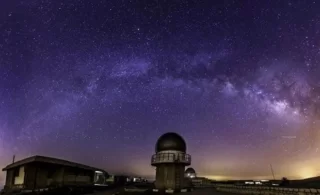We leave Cairo at ten in the morning, from Abbasiya, and from El Remaya Square in Giza, at half-past ten in the morning
We arrive at Wadi El Hitan Reserve at two o'clock in the afternoon, on average. We start visiting the closed museum in Wadi El Hitan Reserve and in its interior. We watch fossils of extinct whales, said by more than 45 million years, and hear a detailed explanation of the evolution of cetaceans.
- We will finish the museum at 2 and a half, and determine the location of our camp, and we will put all our tools in it, and it will be a rest period until four and a half in the afternoon
- We will move at 4:30 pm to visit the open museum, where we will see fossils of extinct whales in the open desert
- At six o'clock in the evening, it will be our lunchtime and we will eat (grilled chicken, rice, potatoes, salad) and the food will be prepared in our camp, so it will be hot and fresh
- Between seven and 10 pm, our astronomical program and astrophotography with the galaxy arm (one of the most beautiful views in the summer sky) and our astronomical program will be a heavy and fat lecture, and we will answer all your questions about astronomical observations and space interactively, and we will also be observed using an astronomical telescope.. and we will learn Practical how to identify constellations and the North Star and photograph with the stars using modern cameras in astrophotography.
After ten o'clock we light a fire and drink Bedouin tea and have a Bedouin evening until 12 o'clock at night.. and after 12 o'clock there will be free time for anyone who likes to relax after a long day or likes to contemplate the sky while sleeping outside the tent.. Each of us can do what he loves.
- We wake up at 4:30 in the morning and start preparing to move from the reserve, and our breakfast will be ready, which will be (hot bread, cheese, eggs, beans).
- At a maximum of five and a half in the morning, we start moving from the reserve to visit and climb Mount Al-Madawarah to see the Magic Lake and Morris Lake.. We reach Mount Al-Madawra at a maximum of 6:30, and our visit to it continues for 45 minutes, and then we move back to Cairo and we reach Cairo at ten in the morning on average.















































































